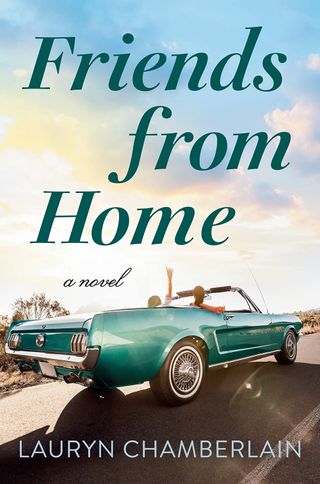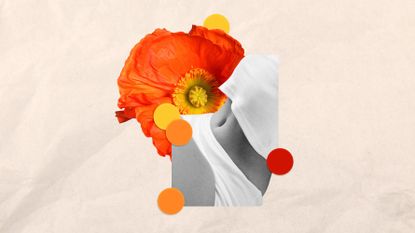
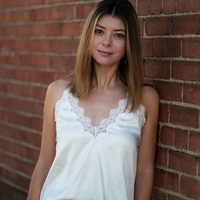
The first person I told was my best friend, Arvin.
I confided in him as soon as I knew with certainty that I had been accepted to Weill Cornell’s egg donor program, in the middle of one of our many long nights drinking wine and talking late on the couch in his Brooklyn apartment. He asked all of the right questions: about the individual or family I might be helping, how the process worked, and, most importantly, when he needed to pick me up from the hospital.
Arvin is not a morning person, but on the day of my egg retrieval procedure in December 2017, he set three alarms and took the train from Fort Greene to the Upper East Side to take me home. Here I was with the full support of my best friend, yet I still asked him to be careful about who he spoke to about my experience, to let me decide how and when to be fully open about it.
“Just let me tell them,” I said, without knowing exactly who “them” was, or if I ever would. In calls to my family and long-distance friends, I omitted the entire experience, hiding my initial fear of the hormone shots, skipping over the blood draws and ultrasounds at the daily doctor’s appointments, and even the post-surgery pain and bloating, which left me unable to walk quickly or lift anything for more than a week.
No one outside of my immediate circle ever needed to know, I reasoned, even though I had wanted to donate my eggs since the first time I heard about the process at age 19. After reading an article about a cancer survivor conceiving via a donor egg, I was certain that I wanted to help people create their own families; I also knew that having children was not in my immediate future, and that I was far more interested in moving to a studio apartment in New York and dedicating myself to writing than rearranging my life to accommodate a family. But even though I knew this about myself—knew it, in the same way I know my eyes are brown—other people were less accepting. When I told one family member that I might be interested in donating my eggs, just to test the waters, I was met with a lecture about “protecting my own fertility” and told to look up articles from women who regretted their egg donation.
It took five years before I felt brave enough to go ahead with the process anyway. I needed to listen to my own voice, not someone else’s. But in the weeks leading up to the procedure, I made the mistake of reading the comments on articles written by women who shared their experiences as egg donors. "How could you? I would never," someone always wrote. "Don’t you want your own kids? How do you think your future husband would feel about it?"
There are so many ways to be a woman in this world, so many paths, and yet none of them ever seem to meet society’s standards.
Women had an obligation, it seemed, to preserve our eggs only for the purpose of procreating with a hypothetical spouse. I hated this notion, but I still couldn’t shake the idea that what I was about to do would be viewed as wrong, or at least controversial, by people I knew and cared about. As my body healed from the 30+ injections and a dozen blood draws, the shame and guilt I felt did not.
Stay In The Know
Marie Claire email subscribers get intel on fashion and beauty trends, hot-off-the-press celebrity news, and more. Sign up here.
That was when I started thinking about Angela.*
I met Angela in college. She's a sweet and round-faced blonde whose bubbly nature belied a serious, scientific mind. She’s also the first woman I knew who told me she’d had an abortion. She whispered it to me in the corner of a dark room at a loud college party and cast her eyes around to make sure nobody else heard. It was her right to want to keep the experience private, and I kept her confidence. Years later, what I remembered wasn’t the abortion itself, or the intimacy between us in that moment; it was the fact that she felt she had to hide this experience out of shame, fear of judgement, and fear of societal punishment, even though one in four women will have an abortion by age 45.
I felt connected to Angela when I donated my eggs, and wondered how in the 21st century women continue to feel shamed for the raw, gritty truth of their experiences with fertility: for miscarriage, abortion, egg donation, parenting, being childless by choice. There are so many ways to be a woman in this world, so many paths, and yet none of them ever seem to meet society’s standards. I wish that reflecting on Angela’s experience in this way had immediately triggered some sort of grand realization about becoming an egg donor. Instead, I tucked it away and pressed it somewhere into the back pages of my brain.
Then, in late 2018, over a glass of wine at a French restaurant, a coworker-turned-friend told me that he and his husband-to-be were thinking about starting a family. They were beginning to look for egg donors and surrogates, he added quietly, perhaps unsure what I would say. I grinned, immediately thrilled for him. Without even thinking about it I blurted out, “You know, I’m actually an egg donor. I think it’s wonderful.” He stood up to hug me across the table, and we pulled each other in.
After that, the egg donation process got easier to talk about, even just as a mention in conversation about pregnancy and reproductive choice. So many people were wonderfully supportive: It deepened some of my relationships, and even inspired another friend to become an egg donor, too. And while I cannot say that I never faced any judgement, what I can say is that over time the judgement mattered less and my story felt like it mattered more. I learned that there are thousands of births each year from donor eggs in the United States alone; this process touches far more people than I ever imagined, and I am proud to speak openly about it.
Now, every time I hear a woman shyly confess that she doesn’t want children, or when someone close to me starts IVF and goes through a similar process to the one I did—all of those needles, hormones, emotions, hopes—I want to remind her that she shouldn’t be ashamed to seek support from the community around her. That I, too, had those feelings, but sharing my experience brought me so much more insight, growth, and connection than hiding it ever could.
All people should have the ability to architect their families as they wish, to construct them thoughtfully and with love, based on what’s right for them deep down inside. There are so many different ways to do that. As an egg donor, I am lucky to have found mine. And if anyone wonders if my future husband would mind, you can ask him at our wedding this summer.
*Names have been changed.
RELATED STORIES
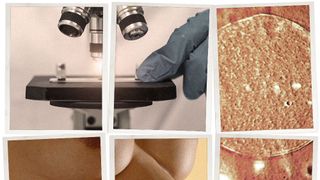
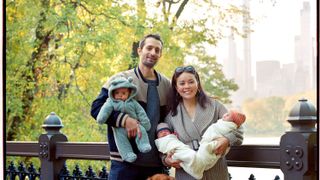
Lauryn Chamberlain was born and raised in Michigan. She studied journalism and French at Northwestern University and then moved to New York City, where she worked for several years as a journalist, freelance writer, and content strategist (sometimes simultaneously). She currently lives in Toronto. Friends from Home is her first novel.
-
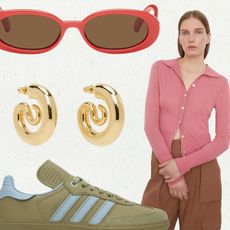 39 Items That Increased My Screen Time This Week
39 Items That Increased My Screen Time This WeekSpotted in my daydreams.
By Aniyah Morinia Published
-
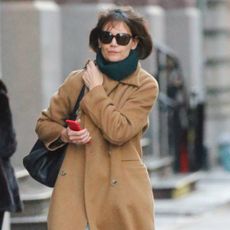 Katie Holmes Cracks the Commuter Outfit Code
Katie Holmes Cracks the Commuter Outfit CodeHer relatable wardrobe staples strike again.
By Lauren Tappan Published
-
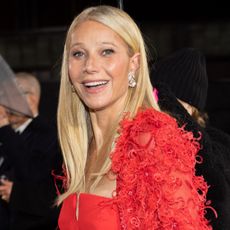 Gwyneth Paltrow Loves This Reality Show and She's Never Been More Relatable
Gwyneth Paltrow Loves This Reality Show and She's Never Been More RelatableShe's a fan of having a "slovenly day," too.
By Meghan De Maria Published
-
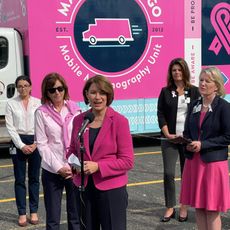 Senator Klobuchar: "Early Detection Saves Lives. It Saved Mine"
Senator Klobuchar: "Early Detection Saves Lives. It Saved Mine"Senator and breast cancer survivor Amy Klobuchar is encouraging women not to put off preventative care any longer.
By Senator Amy Klobuchar Published
-
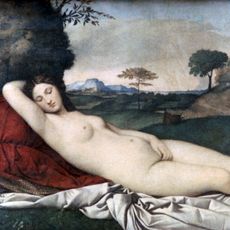 How Being a Plus-Size Nude Model Made Me Finally Love My Body
How Being a Plus-Size Nude Model Made Me Finally Love My BodyI'm plus size, but after I decided to pose nude for photos, I suddenly felt more body positive.
By Kelly Burch Published
-
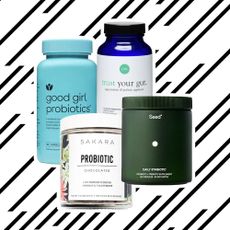 The 20 Best Probiotics to Keep Your Gut in Check
The 20 Best Probiotics to Keep Your Gut in CheckGut health = wealth.
By Julia Marzovilla Published
-
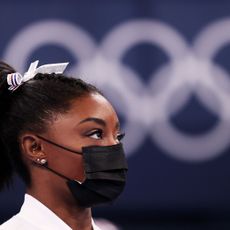 Simone Biles Is Out of the Team Final at the Tokyo Olympics
Simone Biles Is Out of the Team Final at the Tokyo OlympicsShe withdrew from the event due to a medical issue, according to USA Gymnastics.
By Rachel Epstein Published
-
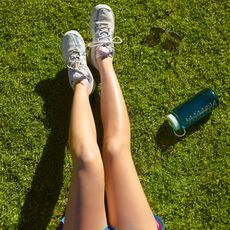 The Truth About Thigh Gaps
The Truth About Thigh GapsWe're going to need you to stop right there.
By Kenny Thapoung Published
-
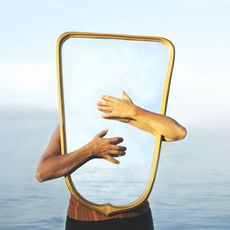 3 Women On What It’s Like Living With An “Invisible” Condition
3 Women On What It’s Like Living With An “Invisible” ConditionDespite having no outward signs, they can be brutal on the body and the mind. Here’s how each woman deals with having illnesses others often don’t understand.
By Emily Shiffer Published
-
 The High Price of Living With Chronic Pain
The High Price of Living With Chronic PainThree women open up about how their conditions impact their bodies—and their wallets.
By Alice Oglethorpe Published
-
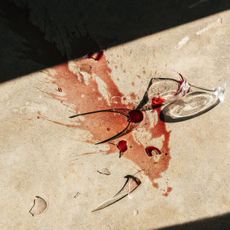 I Used to Imagine Murdering the Men I Dated
I Used to Imagine Murdering the Men I DatedFalling in love helped me finally figure out why.
By Jessica Amento Published
